
Rice mourns longtime engineering professor Marc Robert
Marc Robert, a professor in Rice's Department of Chemical and Biomolecular Engineering for 38 years, died Sept. 2 at age 72.

Rice mourns longtime engineering professor Marc Robert
Marc Robert, a professor in Rice's Department of Chemical and Biomolecular Engineering for 38 years, died Sept. 2 at age 72.
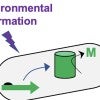
Rice team eyes cells for sophisticated data storage
Rice University receives National Science Foundation support to turn living cells, starting with bacteria, into random-access memory devices. These will be able to store and report data about their environments.

Record 17 Rice University graduate students named GEM Fellows
A record 17 graduate students at Rice University have been named 2022 Fellows of the National Graduate Education for Minorities Consortium.
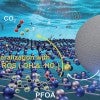
Rice improves catalyst that destroys ‘forever chemicals’ with sunlight
Rice chemical engineers have improved their light-powered catalyst for destroying forever chemical PFOA.
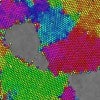
Grain boundaries go with the flow
Rice engineers mimic atom-scale grain boundaries with magnetic particles to see how shear stress influences their movement.
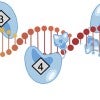
DAP array casts a wide net to fix mutations
Rice engineers introduce DAP, a streamlined CRISPR-based technology that can perform many genome edits at once to address polygenic diseases caused by more than one glitch.

Rice chemists skew the odds to prevent cancer
A theoretical framework by Rice University scientists shows how to increase the odds of identifying cancer-causing mutations before tumors take hold. They demonstrate that only a few energetically favorable pathways are likely to lead to cancer.
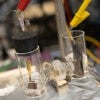
Rice process aims to strip ammonia from wastewater
Engineers develop a high-performance nanowire catalyst that pulls ammonia and solid ammonia (fertilizer) from nitrate in wastewater.

NSF awards 38 Graduate Research Fellowships to Rice students
The National Science Foundation has awarded 38 Graduate Research Fellowships to Rice University students.
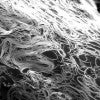
Rice scientists have developed an acid-based solvent that simplifies carbon nanotube processing.

Stroke analysis project wins Spring D2K Showcase
Deep learning can be a tool to help those who suffer strokes discover their risk of having another. That idea won the top capstone prize in the Spring D2K Showcase.
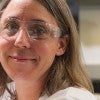
Living sensor research wins federal backing
Rice researchers are leading a federally funded project to improve communications between microelectronics and microorganisms.

US News grad school rankings give high marks to Rice programs
A total of 19 graduate programs at Rice University rank among the nation's top 25 in their categories in the latest edition of U.S. News and World Report’s “Best Graduate Schools.”

Thomas Senftle wins NSF CAREER Award
Rice University chemical and biomolecular engineer Thomas Senftle has won a National Science Foundation CAREER Award to advance machine learning techniques for designing new catalysts.
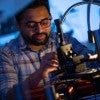
Models for molecules show unexpected physics
Rice engineers discover unusual properties in magnetized colloids that surprisingly adhere to the physics described by Kelvin’s equation, which models the thermodynamics of molecular systems.